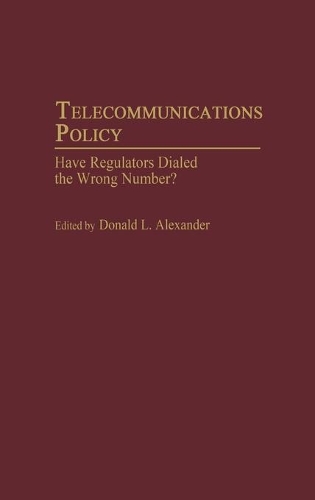
Telecommunications Policy: Have Regulators Dialed the Wrong Number
(Hardback)
Publishing Details
Telecommunications Policy: Have Regulators Dialed the Wrong Number
By (Author) Donald L. Alexander
Bloomsbury Publishing PLC
Praeger Publishers Inc
30th September 1997
United States
Classifications
Tertiary Education
Non Fiction
Central / national / federal government policies
Communication studies
384.041
Physical Properties
Hardback
184
Description
This collection of essays examines major policy issues confronting federal and state regulators in the telecommunications industry. The essays describe how past regulatory decisions have contributed to a growing tension between emerging competition and the preservation of specific social objectives like the continuance of universal service, and thus provide a perspective on the current public policy debates. Although each author discusses a different policy issue, the common theme in this volume is the argument that past regulatory decisions, which were often motivated by political compromises rather than sound economic analysis, are the primary source of the inefficiency that exists in the telecommunications industry today. This insight points to potential harm that legislators may create from ignoring economic forces when deregulating an industry. The Telecommunications Act of 1996 is an example in which deregulation has created more, not less, regulatory barriers affecting competitors. The authors challenge policy-makers to consider no regulation to insure that competitive forces determine prices, quantities, and quality of service for the vast array of telecommunication services available in today's marketplace.
Author Bio
DONALD L. ALEXANDER is Associate Professor of Economics at Western Michigan University and adjunct scholar with the Mackinac Center for Public Policy. His research and teaching interests are in the areas of industrial organization, antitrust economics, and the economics of regulation. He is the author of several journal articles.
